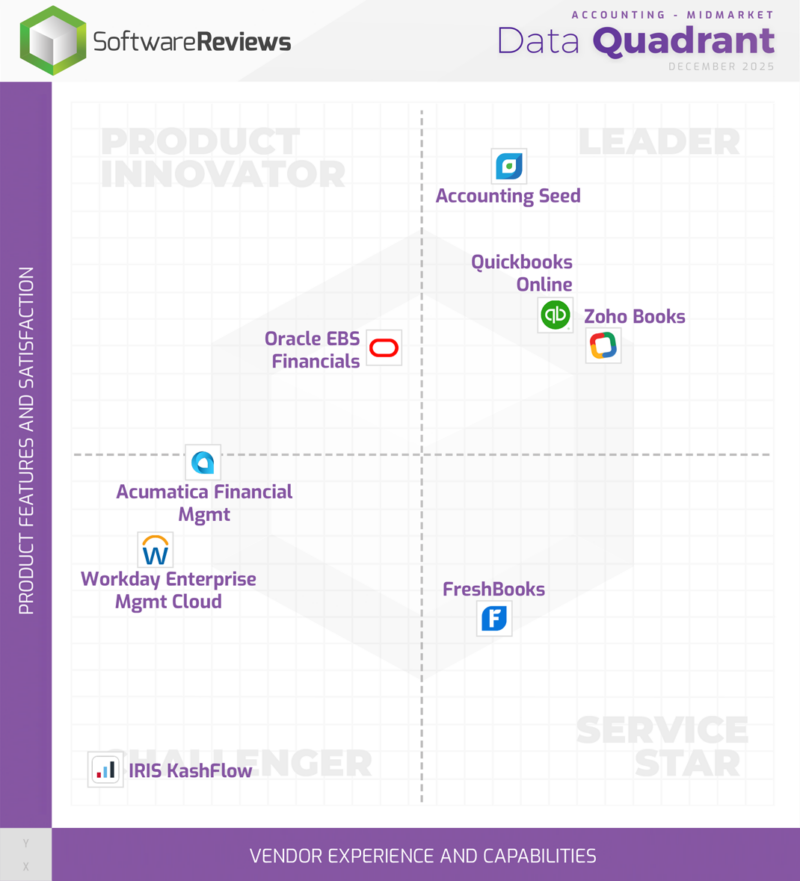
Accounting teams are busy enough, and repetitive work doesn’t make it any easier. Reconciliations, invoice matching, and data entry still absorb huge portions of the workweek—often at the expense of strategy.
Artificial intelligence proves valuable across industries, including accounting. This technology helps accountants and business owners streamline processes, reduce errors, and focus on data-driven strategy instead of manual tasks.
In this guide, we’ll walk through how AI is reshaping modern accounting, from automation and compliance to forecasting and audit support. You’ll learn about the most common applications, benefits, challenges, and what’s coming next.
Key takeaways
- There are two main types of accounting AI to know. Large language models (LLMs) explain information, while agentic AI carries out tasks.
- Common uses: Automating reconciliations, flagging fraud, managing invoices, and forecasting cash flow.
- AI won’t replace accountants. It will, however, eliminate busywork, empowering accounting and finance teams to focus on strategy.
- Clean, connected data is key. The value of AI depends on having your accounting, sales, and operational data in one place for accurate, real-time insights.
- Accounting Seed makes AI adoption easier. Built natively on Salesforce, Accounting Seed connects your company’s data across departments, so AI agents can work securely, automate processes, and deliver insights without additional integrations.
What is AI in accounting?
AI in accounting is about leveraging smarter tools to remove the friction from daily work. By automating the routine tasks and improving the accuracy of financial data, AI gives accountants more time for meaningful analysis and strategic planning.
All of this is possible via machine learning, natural language processing (NLP), and robotic process automation (RPA). It’s the same kind of leap forward the profession experienced with Excel and the internet.
Two types of AI that are changing accounting
When most people think of “AI”, they picture ChatGPT, a large language model (LLM) that answers questions and summarizes information. But that’s not the only type of AI tool available these days. Some technology—called agentic AI—can act on your behalf.
Understanding the difference between these two types of AI will help you identify which tools best fit your team’s needs.
Defining LLMs & Agentic AI
- Large language models (LLMs) are great at analyzing and explaining massive amounts of data. One use case is explaining compliance requirements in plain language.
- Agentic AI performs routine tasks that you set guardrails for. Think flagging duplicate bills or prioritizing payables.
In short, LLMs explain what’s happening in your data, and agents follow through on the work that needs to get done. Keep in mind that agents aren’t one-size-fits-all; there are two types you’ll want to know.
Two categories of agents
As Salesforce describes it, we’re seeing “the rise of AI agents”. These agents fall into two main categories:
- Operational agents: Think of these like the “doers.” They perform tasks on your behalf, like matching invoices, categorizing expenses, and generating journal entries.
- Informational agents: These are the “answer-givers”, providing insights and explanations based on data. You might ask an agent, “What’s my cash flow projection for next quarter?” and it will respond with an analysis.
Both types have huge potential to help finance teams work faster and make better decisions—as long as your data is clean and connected.
Traditional accounting software requires manual inputs and rigid, rule-based workflows. AI-driven platforms, on the other hand, learn from and adapt based on data it’s given.
Why the difference matters to your finance team
When all of your business data—sales, operations, and accounting—lives in one system, agents have the context they need to act reliably in real time.
Carly Crossland, CPA and Product Manager at Accounting Seed, describes an important nuance: agents aren’t searching the open web like traditional LLMs—they’re working securely inside your own Salesforce data.
“When Accounting Seed’s AI agents analyze information, they only look at the data in your organization. When they search for an answer, they’re exclusively searching your Salesforce instance.”
Daily use cases of AI in accounting
While not every platform offers all of the below capabilities today, these examples highlight the kinds of tasks AI is able to take on:
- Automating routine tasks: Data entry, reconciliations, and invoice matching can be handled in seconds.
- Invoice and expense management: AI can auto-categorize expenses, flag anomalies, and process receipts without the need for human intervention.
- Fraud detection and risk management: Real-time monitoring helps spot unusual patterns before they become major problems.
- Tax compliance and preparation: AI tools can keep up to date with changing tax rules automatically, maintain audit trails, and generate real-time reports.
- Financial forecasting and reporting: Predictive analytics delivers more accurate forecasts, KPI monitoring, and cash flow projections.
- Audit support and documentation: Continuous auditing and anomaly detection reduce surprises during year-end audits.
AI in action with Accounting Seed
Accounting Seed is built natively on Salesforce, uniting your business’ data across departments. In addition to breaking down silos, Accounting Seed’s AI agents work across several core accounting processes to streamline daily tasks:
How it works: Once prompted, agents propose real-time matches, reminders, and payment priorities using your policies and data. From there, your team reviews, adjusts, and approves. The goal is to give accountants time back while keeping people in charge of accuracy and decisions.
Below are some examples of prompts you can ask Accounting Seed’s AI agents:
- “Can you find duplicate bills?”
- “Do I have any overdue billings?”
- “Can you post/unpost these bills?”
- “Can you show me the last 10 billings to our GL account?”
We’d be happy to walk you through how these agents fit into your process. Request a demo.
Real-world example of how AI is used in accounting
Take a look at an accountant’s experience before and after using Accounting Seed’s AI agents.
- Without AI: Your controller spends four hours reconciling 200 transactions manually, toggling between multiple systems to verify each match.
- With Accounting Seed’s AI agents: AI matches 180 transactions in minutes and flags 20 exceptions for human review—all while your controller focuses on the exceptions and analysis.
Now that we’ve talked about what AI can do, you might be wondering, “What benefits and challenges should finance teams expect as AI adoption grows?”
Benefits & challenges of AI in accounting
As AI becomes more common in accounting processes, teams will see benefits and a few challenges. Here’s what to expect:
Benefits
- Efficiency: Automates repetitive tasks, so teams can focus on strategy.
- Accuracy: Reduces human error and helps flag anomalies.
- Real-time insights: Provides faster, more predictive decision-making.
- Cost savings: Cuts down on labor costs and inefficiencies.
Challenges
- Setup costs: Implementation and integration (if needed) require upfront effort.
- Data security: Sensitive information must be protected.
- Training needs: Teams must learn to work with AI tools effectively.
- Change management: Some staff may resist new workflows.
- ROI timing: Benefits are real but may take time to materialize.
Like any new tool, AI takes some getting used to. The good news is that platforms like Accounting Seed address many of these challenges and make it easier to adopt AI at your own pace.
Check out Accounting Seed’s webinar, The Data-First CFO: What you really need to know about AI, to learn how finance leaders are tackling the challenges of AI as technology evolves.
Will AI replace accountants?
No, AI won’t replace accountants, but it will change what they spend their time on. At a time when the industry is facing a CPA shortage, that shift matters. By automating the most repetitive work, AI creates a more engaging career path from day one.
Think of AI as an assistant that handles tedious work. Your finance team still sets the rules, reviews recommendations, and ultimately approves.
Accelerating accounting careers at every level
Crossland believes AI is “a new way to get people excited about becoming accountants again.” As AI takes routine work off their plates, accountants at every level can focus on higher-value opportunities:
- Recent grads and new hires can ramp quickly by having less manual work, reviewing AI-prepared work, and learning advanced judgment with guidance from senior staff.
- Mid- and senior-level accountants can focus on controls, strategic insights, and mentoring instead of manual reconciliations.
Your checklist for AI implementation
Getting started with AI in accounting is exciting, but could feel a little overwhelming at first. Start small, stay focused on your most repetitive tasks, and scale as you become more comfortable with these tools.
Here’s a practical checklist to follow:
- Identify your highest-volume manual tasks: Look for work that happens daily or weekly, such as invoice matching, expense categorization, and payment reminders.
- Find ways to have your company’s data in one place: AI works best with unified data. Look for platforms that eliminate—not just integrate—silos between your CRM, operations, and accounting systems.
- Prioritize data accessibility: Make sure the right people can access the data they need when they need it. AI amplifies good data practices and exposes bad ones.
- Help your team feel confident using AI: Set aside time for hands-on training, and celebrate early wins to build momentum.
- Monitor results and optimize as you go: Track time savings, error reductions, and user adoption. Adjust your approach based on what you learn.
The right platform makes this all the easier
In fact, it might even handle the work for you. Because Accounting Seed is built natively on Salesforce, the software will:
- Streamline repetitive accounting tasks automatically
- Connect your company’s financial and operational data in one place (no integration needed)
- Make that information easily accessible to every department
Additionally, our team offers in-app AI help, open office hours, and customer webinars to ensure your team has the knowledge they need to succeed.
Looking ahead at accounting AI
AI in accounting isn’t slowing down—it’s accelerating. Here are the shifts that could define the next few years:
- AI agents get smarter. Tomorrow’s agents will plan multi-step processes, prioritize exceptions, and adapt to changing rules, keeping finance teams focused on strategy instead of execution.
- Systems learn and improve. Instead of relying on manual updates, AI observes your workflows and adapts accordingly. It can spot bottlenecks, recommend better processes, suggest improvements, and implement changes with your approval.
- Continuous auditing becomes normal. Real-time transaction monitoring means issues don’t wait for month- or year-end to show up. AI spots anomalies as they happen, reducing surprises and strengthening compliance.
AI is only becoming more helpful from here, and teams that prepare now will be ready to take full advantage.
The bottom line: AI is changing the role of accountants for the better
With the right tools, accountants and finance teams can eliminate busywork, reduce risks, and make more confident decisions.
Ready to see how AI fits into your accounting process? Request a demo.
FAQs
- Question: Can AI do my bookkeeping?
- Answer: AI can automate many bookkeeping tasks, such as matching transactions, categorizing expenses, and reconciling payments. But bookkeeping isn’t only data entry. It requires understanding context, judgment, and oversight. Think of AI as a powerful assistant: It can handle the repetitive work so your finance team can focus on reviewing and advising.
- Question: Can AI solve accounting problems?
- Answer: AI can identify problems, such as flagging late payments, and recommend the next best action. But solving accounting challenges still requires human expertise. AI gives teams better visibility, so finance teams can make faster, more informed decisions.
- Question: Which AI tool is best for accounting?
- Answer: The best AI tool is one that fits your workflow. Solutions that sit on disconnected systems can’t deliver the real-time insights you need. Accounting software that’s built on Salesforce, like Accounting Seed, brings financial and customer information together, unlocking cleaner data, smarter automation, and more confidence in the numbers.
- Question: Is it difficult to implement AI in accounting?
- Answer: It can feel intimidating at first, but implementing AI is easier than most finance teams expect. Like any new tool, AI takes planning and setup, but modern accounting platforms make it much easier. The key is starting small; focus on automating one or two repetitive tasks, make sure your data is clean, and build from there.
- Question: How long does AI implementation take?
- Answer: It depends on your starting point. Teams with clean, connected data and modern systems can see results in weeks. Those migrating from legacy systems or dealing with integrations between business systems may need a few months. The key is starting with one process, proving value, and then expanding.
- Question: Why is clean data important for accounting AI?
- Answer: When customer and financial data live in separate systems, errors and inconsistencies are almost guaranteed, even with integrations. Consolidating onto one platform helps ensure your data stays accurate, consistent, and AI-ready.
- Question: Can AI work with my existing accounting software?
- Answer: It depends. Many accounting systems add AI on top of siloed data, limiting the value you get from it. When information is spread across different tools, you often need third-party connectors or manual exports, which leads to delays or data quality issues. With a unified platform, AI can do far more. Accounting Seed, for example, is built natively on Salesforce, housing financial and customer data already live in one place.
Glossary of Terms
- Large language model (LLM): AI that reads, writes, and explains
- Agent: AI that takes action in your systems based on rules you set
- Natural Language Processing (NLP): how AI understands and responds to human language
- Robotic Process Automation (RPA): Software robots that handle structured, repetitive tasks
See Accounting Seed in action
See how accounting on Salesforce can eliminate the need for costly integrations—and silos of mismatched information—by sharing the same database as your CRM.




